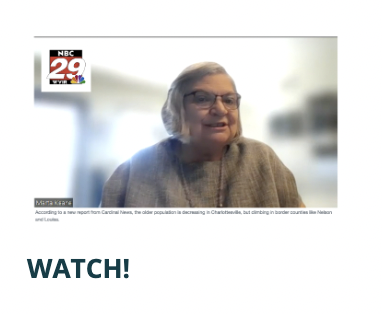Ironically, as the world has grown more interconnected, people have grown more disconnected from each other. Even before the pandemic, which required people to self-isolate, many health professionals believed loneliness was becoming an epidemic. Emerging research showed that social isolation could be deadly, leading to heart disease, mental health issues, dementia, and shorter lifespans. Back in 2018, Britain appointed a “loneliness minister” to tackle the problem. Later Japan and Sweden followed suit. In America, Dr. Vivek Murthy, the former surgeon general, was calling loneliness a “profound public health issue.” Five years later, Dr. Murthy, who was reappointed as surgeon general, sounded the alarm earlier this year in an 81-page report on the “devastating impact” of loneliness.
“Given the significant health consequences of loneliness and isolation, we must prioritize building social connection the same way we have prioritized other critical public health issues such as tobacco, obesity, and substance use disorders," wrote Dr. Murthy.
Back in 1964, the surgeon general issued a historic warning about the dangers of smoking, and many observers think Dr. Murthy’s spring report could be just as significant.
“I suspect that this report on loneliness will also be remembered as one of historic significance,” wrote New York Times columnist Nicholas Kristof, who has written frequently about the epidemic of loneliness, pointing out that the 1964 warning helped “lay the groundwork for a long decline in tobacco use that by one estimate saved eight million lives.”
As Kristof mentions, Murthy wrote in the report that “loneliness is far more than just a bad feeling,” and offered this stark warning if steps aren’t taken to address the problem - “we will further retreat to our corners — angry, sick and alone.” And while seniors are particularly vulnerable to the physical effects of loneliness and isolation, we are all in this together, as research has shown that young adults are twice as likely to report feeling lonely than seniors.
However, as both Kristof and Murthy point out, while loneliness and isolation are widespread and dangerous to our well-being, and the causes complex, the cure is pretty simple: social connection
That was on display locally during the United Way’s annual Day of Caring last week, in which hundreds of volunteers across the region came together to work on dozens of projects and events. JABA, our local aging services agency, which operates centers across the region for older adults, also held its annual “Fall Ball.” Seniors from JABA centers in Charlottesville and Greene, Nelson, Louisa, Fluvanna, and Albemarle counties all came together (thanks to JAUNT buses) for music, dancing, games, and a Cajun-style meal at JABA's Greene County center location in Stanardsville. While you could notice different levels of engagement among the seniors, collectively there was such energy in the room. A rising sea of connection lifted all boats. And most importantly - everyone looked like they were having such fun.
Community senior centers are vital social hubs for area seniors, especially in rural areas, and they strengthen the “social infrastructure” that Dr. Murthy cites as a strategy for combating the loneliness epidemic - the idea that “communities must design environments that promote connection, establish and scale community connection programs, and invest in institutions that bring people together.” Indeed, as Murthy wrote, combating loneliness involves a wholesale re-investment in our communities - upgrading parks, libraries, and community centers, improving public transportation, fostering better work-life balance, and deepening our cultural understanding of the importance of social connection, especially in relation to the digital environments that are now part of our lives.
If you or an older adult you know appears to be spending too much time alone, consider joining a JABA center, becoming a member of the Center at Belvedere, joining a support group in your area, or simply visiting a park for a walk. Questions? You can call JABA’s Senior Helpline at 434.817.5244 to find out about area programs and resources. You are not alone. Reach out and stay connected - our lives and the health of our communities could depend on it.
This article originally appeared in the September 27, 2023 issue of C-Ville.





